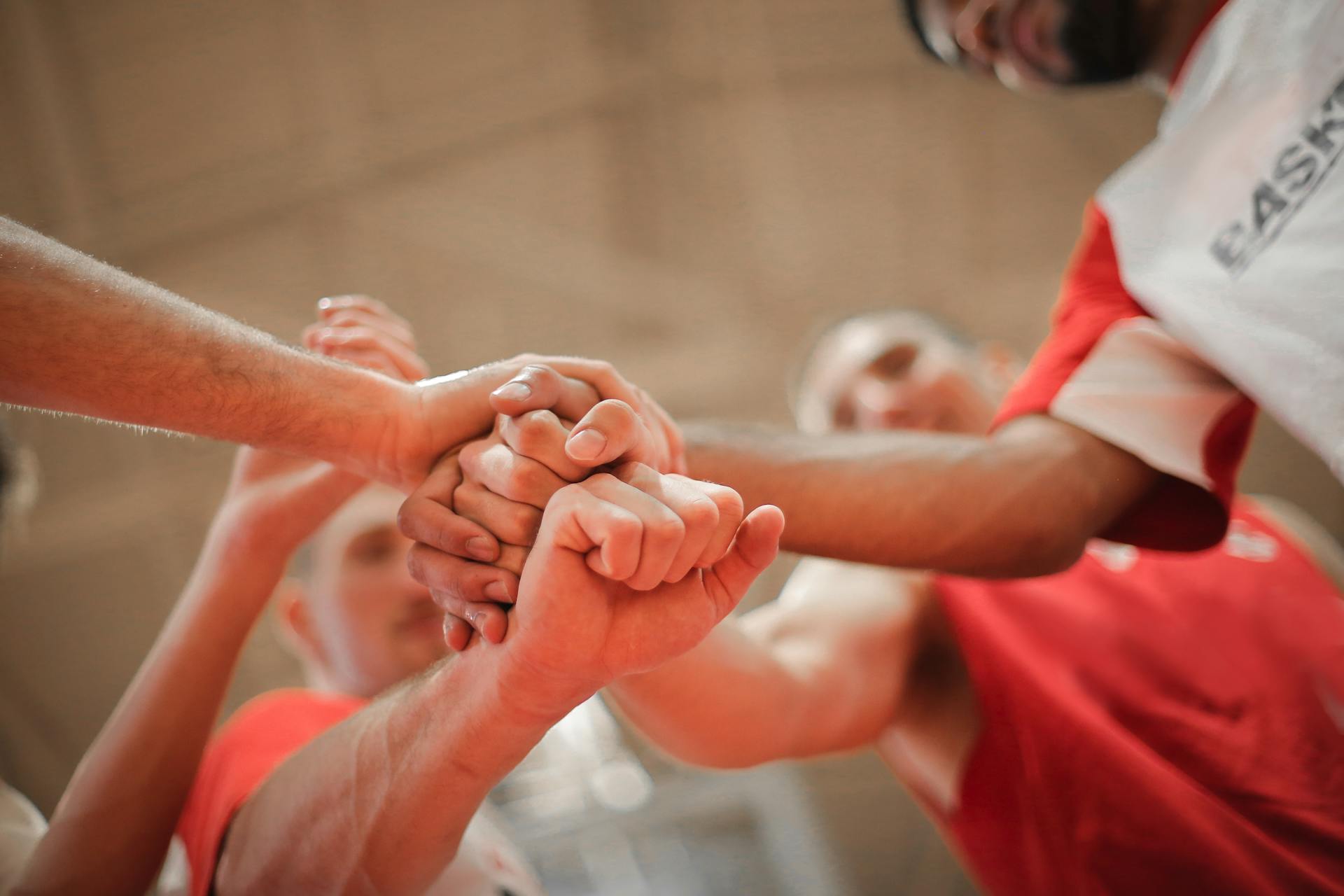
Running is a great exercise for many people, and becoming a certified running coach can be a great way to turn your passion into something that you can do professionally. Here are some steps on how to become a successful running coach.
First, you’ll need to get certified as a coach. This usually requires completing an accredited coaching program and certifying through multiple sports governing organizations such as USA Track & Field, Athletics Canada or World Athletics. Depending on your country or state, there might be special requirements, so it’s important to check them before getting started.
Second, put together the necessary items for your running sessions. This includes creating training plans for athletes, assessing their current fitness level and progress, finding facilities for sessions, having the necessary equipment (stop watch, tape measure etc.) and being supportive of each athlete's individual needs and goals. Coaches should also invest in getting first aid and CPR certifications as well as liability insurance which most regulating bodies require in order to practice coaching professionally.
Finally, create a professional presence online to ensure people know that you offer coaching services. Utilize social media platforms such as Instagram and Facebook to promote yourself as well as create blog posts or even videos that show who you are and your own running journey so potential clients can learn more about you before deciding if they would like to work with you! Additionally make sure to join relevant running forums/groups/associations where other runners/coaches hang out so you can network and make connections with others in the field or receive tips on how to become better coaches.
By following these steps closely and diligently working on improving your craft, it is possible for even first time coaches to become highly successful in the profession! Have patience though- it takes time but it is worth it!
For your interest: How to Become a Golf Course Architect?
What qualifications are required to become a running coach?
Becoming a running coach requires a set of qualifications and skills that varies depending on the level of coaching. For instance, someone who simply wants to provide basic advice and training for recreational runners does not need to have the same qualifications as a professional running coach working with elite athletes.
At its most basic level, becoming a running coach requires a good understanding of running mechanics, proper workout programming, mental strength and injury prevention in order to prepare runners for their desired goal. Knowledge of general anatomy, physiology and kinesiology can also be beneficial in helping your clients achieve the best performance.
For those looking to become a professional running coach, additional credentials are often necessary. This may include certification from the US Track & Field Coaches Association or similar supervising organizations depending on your location, as well as a four-year degree in exercise physiology or physical education or equivalent experience in distance/sprint athletics. To be really successful at this career choice, it is necessary to have extensive knowledge on different types of training theories that you can apply to improve your athletes' performance levels.
Overall, becoming a successful running coach has no one size fits all requirement; however, investing time and effort into finding out what type of knowledge is needed for whichever level of coaching you’re interested in will put you well on your way towards helping others achieve their goals and optimal performance.
You might like: Professional Golf Clubs Cost
What certifications are necessary to become a running coach?
Becoming a running coach requires dedication and love to the sport, and with the right combination of skill and knowledge, training as a running coach can also involve attaining certifications that demonstrate you’re a qualified professional in the field.
The certifications depend on whether you wish to become a coach for competitive runners or for a recreational group of joggers. Generally speaking, both disciplines require different levels of qualifications. If you are looking to teach competitive running, the requirements will generally be more broad and technical than coaching recreational joggers.
For those aiming to become a competitive running coach, certification is often necessary from an approved organization or association. Depending on where you live, these certifications could include being an accredited Coach Educator or Instructor from Athletics Canada (Canadian coaches) or USA Track & Field (American coaches). Further certification options can be attained through organizations such as Coaching Association of Canada, National Strength & Conditioning Association or Road Runners Club Of America.
For those wishing to coach recreational runners, there may be no formal qualification required, although updated knowledge on topics such as nutrition and training methods is highly beneficial so that you can provide guidance and support in these areas to your clients. Nonetheless, being certified in CPR/First Aid and attending running coach seminars are still recommended. This is especially important if your clients are members of an athletic organization such as a running club or company-sponsored program.
All this certifications ensure that coaches possess the skills needed to help their clients reach their specific goals safely and effectively-- no matter what their level is! With discipline and diligence regarding your required qualifications, becoming certified will not only enhance your career prospects but also open doors for unique opportunities to drive your passion for running even further!
A unique perspective: Volleyball Club
How can I gain experience to become a running coach?
Becoming a running coach involves more than just knowing how to run. Becoming an effective coach requires an understanding of proper techniques and knowledge of what support and encouragement a runner needs in their journey. It also requires experience working with people, giving feedback and observing their running form. The first step to becoming a running coach is acquiring the necessary knowledge. It is crucial to understand the fundamentals of running mechanics from proper stride length, form, and technique as well as having knowledge of nutrition, strength training, and hydration techniques for runners. Reading about different coaching techniques and literature related to running can be extremely beneficial for any aspiring coach.
In addition to developing your technical knowledge, it is important to gain experience observing runners’ performances and developing relationships with them. Consider volunteering with a local school or club team by offering insight or advice during practices or meets. As you gain more experience and establish your reputation, reach out to fellow coaches in your community or look into professional associations like the US Track & Field Coaches Association that provide extensive resources such as seminars and networking opportunities to sharpen your coaching skillset.
Finally, consider mentoring athletes one-on-one so you can get direct feedback on your coaching methods. This may include researching potential athletes and determining if they would be a good fit with you as their coach, tracking their performance overall improvements over time, finding ways for them to push themselves in their training sessions, creating practical goals for them, offering motivational support throughout their journey, providing feedback on areas of their form that need improvement etc. Through this one-on-one relationship building process you will not only find opportunities for clients but also gain crucial skills that will give you the foundation of being an effective running coach—such as motivation tactics sincere compassion that are specifically tailored towards each individual athlete’s goals.
You might like: Gain Confidence
What is the best way to market myself as a running coach?
When it comes to successful marketing there is no single magic formula that stands out from the rest. However, for any running coach looking to maximise their exposure, the following are some key strategies to employ:
First and foremost, establish a presence on social media networks. Platforms such as Facebook, Twitter and Instagram offer an excellent way of getting your message across to potential athletes. Leverage these networks to post fascinating content and engage with your followers, while highlighting your skills and achievements as a coach. Aim to keep content timely and relative; consider doing fitness tutorials on YouTube or setting questions such as “what’s your biggest challenge when training?”
Next, use SEO (Search Engine Optimisation) techniques to get traffic onto your website or blog. Ensure that keywords related to running coaching are present within meta tags and page titles / headings; this will help Google’s search algorithm direct individuals towards relevant content. In addition, post service updates with links pointing directly back onto the site; for example, write-ups on client success stories with a call-to-action at the end of each article.
Finally, collaborate with other established figures or brands within the running industry - whether it's partnering with a video producer or reaching out to an online magazine outlet - this is an effective way of amplifying reach. As a result, you will be increasing annual brand awareness by accessibly exposing yourself in front of new audiences; an important factor for any growing business in the modern age.
By effectively utilising social media campaigns alongside thoughtfully crafted content and network collaborations - coaches can market themselves as a professional service which is both modern and desirable across numerous regions.
On a similar theme: What to Wear When Running in Rain?
What type of employers usually hire running coaches?
Running coaches help individuals of all ages and levels to push their physical limits through a combination of technique, nutritional advice, and personal encouragement. Employers that hire running coaches range from major universities and professional sports teams to local gyms and private personal training services.
Major universities and professional sports teams are some of the biggest employers of running coaches. Aspiring athletes compete in an increasingly fierce environment in order to win scholarships and make the team. Running coaches provide advice to athletes on proper technique, how to get faster times, how to plan carefully executed goals, and how to avoid injury when pushing one's endurance. A running coach plays an important role in preparing athletes for big races or events like marathons by helping them plan ahead for successful performance. Many universities that have well-developed track programs often hire outside running instructors to give students valuable insight into the sport that competitive college or professional trainees have yet to pick up.
Local gyms also employ running coaches as a means remain competitive by offering services beyond standard gym memberships. Private personal training studios commonly have staffed running coaches who design branded workouts tailored specifically for amateur competitors or individuals simply looking for an alternative way of staying fit. The small boutique setting allows for personalized attention that larger athletic organizations fail to provide for their athletes, making private personal training studios highly sought after in larger cities across the country.
Finally, if working with only runners isn’t your cup of tea, many non-profit organizations such as 5k race/fun run groups routinely look for part-time volunteer coaches who can help lead smaller groups by providing instruction on pace techniques while also aiding participants in learning healthy nutrition habits essential maintaining a successful lifestyle or improving one’s performance as regular runner/ walker. Working with a non-profit organization is great way not just help your community but also build up your resume as long as you inform potential employers about the experience you have acquired from your volunteer work.
In summary, many different types of employers seek out running coaches due to the increasing demand for endurance trainers - including major universities and professional sports teams, local gyms and private personal training studios, as well non-profits supplying volunteer coaching services - which opens up plenty of opportunities for those passionate about teaching others how run better or faster while staying injury free!
Readers also liked: Baseball Faster
Are there any additional resources available to help me become a running coach?
It may seem daunting to become a running coach but don’t fear-- there is no shortage of resources available to help you get started. Whether you’re an experienced runner or just starting out in the coaching world, you will find plenty of opportunities and information to help you.
For starters, there are certification courses specifically focused on teaching individuals how to become a running coach. Working through these courses can give you the basics of coaching, including how to create race plans, effective communication skills and other important concepts related to coaching runners. Courses like these are typically geared towards those who have prior experience of running and teaching but can be great starting points for getting a deep understanding of the sport if you’re a complete beginner.
The United States Track & Field Association is another great resource for putting your running coaching skills into practice and gaining access to information through their memberships program as well as finding job postings from established coaches looking for assistance. The American Running Coach Association also offers certifications in specialized fields such as endurance coaching, soccer coaching and more. In addition to these certifications, there are various online communities filled with experienced professionals that can provide guidance in designing specific training plans or give advice on ways to structure your classes effectively.
Overall, even if you haven’t formally studied running or coaching before, there are plenty of resources available at your fingertips that will provide all the knowledge and expertise needed to become a successful running coach.
Suggestion: Golf Courses
Sources
- https://trainingtilt.com/how-to-become-a-running-coach
- https://athleticsontario.ca/coaches/nccp-coaching-certification/
- https://relentlessforwardcommotion.com/12-factors-consider-hiring-a-running-coach/
- https://uesca.com/courses/uesca-running-coach-certification/
- https://www.tempofit.org/how-do-i-become-a-running-coach/
- https://www.womensrunning.com/training/beginner/do-i-need-a-running-coach/
- https://www.active.com/running/articles/how-to-be-your-own-running-coach
Featured Images: pexels.com


